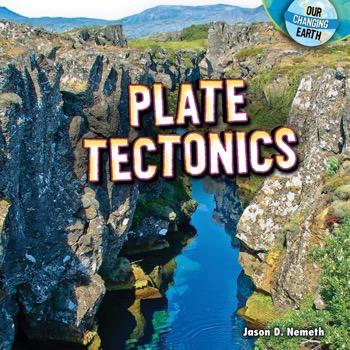
Plate Tectonics
Around 225 million years ago, Earth was home to the supercontinent Pangaea and the massive sea Panthalassa. In fact, Earth's land and water existed in several configurations before today's familiar continents and oceans formed. Readers of this book will get an accessible introduction to plate tectonics. This key scientific theory explains why Earth's landmasses have changed over time. The theory posits that the planet's crust is broken up into plates that are constantly, if slowly, on the move. The book also examines the impact of plate tectonics on volcanoes, earthquakes, and the formation of mountains and rift valleys.
* Reviews *
Series Review: Our Changing Earth"These books are valuable introductions to six areas of our planet that are undergoing change. The short sentences make these books easy enough for students in lower grades, while the content is sufficient for those approaching middle school to gain a basic understanding. Useful for reading aloud, due to the colorful illustrations and presentation of text, the busyness of the pages can be distracting for some readers. Some students might have problems with the vocabulary, however these topics are not always easily expressed using simple language. These titles tie in with ecology, science, and Earth Day, helping students to see the impact of what is being done today and what was done in the past."
--Library Media Connection
Series Review: Our Changing Earth
"These introductions cover a medley of topics, using eye-catching photos, clear diagrams, and text that clearly relay key scientific concepts. . .the series is a useful resource, complete with a link at the back of each volume to a list of websites chosen and updated regularly by the publisher."
--School Library Journal
Book Review: Plate Tectonics
"Readers of this book will get an accessible introduction to plate tectonics."
--Lunar and Planetary Information Bulletin, Lunar and Planetary Institute















